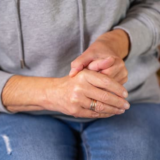Having your say on medicines in Australia
What is PBAC? | Consumer input into PBAC deliberations | Medicines for people with musculoskeletal conditions | Outcomes of the last PBAC meeting | Need help? | More to explore
If you’ve ever been prescribed medicines by your doctor, chances are you’ve encountered the Pharmaceutical Benefits Scheme (PBS) – even if you didn’t realise it.
The PBS is an Australian Government program that makes medicines more affordable. It’s part of the government’s broader National Medicines Policy.
The PBS began as a limited scheme in 1948 with free medicines for pensioners and a list of life-saving and disease preventing medicines free of charge for others in the community. It has grown a lot since then and now subsidises the cost of medicine for most medical conditions.
For a brief overview of the PBS and how it works watch this short video.
And if you’ve ever wondered how medicines go from being just an idea, to the shelf in your pharmacy, read this article from The Conversation.
So we now know how medicines are developed and how the PBS works. The next step is having medicines approved to be listed on the PBS. Medicines aren’t automatically listed once they become available. They have to go through a process involving the Therapeutic Good Administration (TGA) and the Pharmaceutical Benefits Advisory Committee (PBAC). This ensures the medicines are safe and cost-effective.
Patient Voice Initiative has developed a flowchart explaining the approval process for medicines.
What is PBAC?
The Pharmaceutical Benefits Advisory Committee (PBAC) is an independent expert body appointed by the Australian Government. Members include doctors, health professionals, health economists and consumer representatives.
The PBAC’s primary role is to recommend new medicines for listing on the PBS. No new medicine can be listed unless the committee makes a positive recommendation.
When recommending a medicine for listing, the PBAC takes into account:
- the medical conditions for which the medicine was registered for use in Australia,
- how effective it is,
- how safe it is,
- if it provides value for money compared with other treatments.
Find out more about the PBAC and its current membership.
Consumer input into PBAC deliberations
The PBAC meets three times a year, usually in March, July and November.
In addition to considering the clinical and economic information provided by the ‘sponsor’ of a medicine (usually a pharmaceutical company), the PBAC also welcomes comments from patients, carers, members of the public, health professionals or members of consumer interest groups.
Musculoskeletal Australia (MSK) strongly supports the submission of consumer input to the consideration of medicines by the PBAC. We can help you provide this input in two ways:
- You can provide your comments to us by a specified date and our staff will finalise your input and submit it to the PBAC. This option allows a combined response to be provided but might also appeal to you if you don’t feel confident writing your own submission, or you don’t have the time to do so. Further information about this process is available via the link below which takes you to the list of musculoskeletal drugs being considered at the next PBAC meeting.
- You can submit your comments, individually or with a group of like-minded people to PBAC by the due date via the online submission form provided on the PBAC website or you can email your comments directly to CommentsPBAC@health.gov.au
Some tips to keep in mind when choosing this second option are provided by Patient Voice Initiative.
Medicines for people with musculoskeletal conditions
Find out the details of the next PBAC meeting:
- the date of the next meeting of the PBAC
- the closing date for consumer submissions
- the musculoskeletal relevant medicines to be discussed.
Need help?
If you have any questions or would like more information, we’re here to help. Please email info@msk.org.au or call 1800 263 265.
More to explore
Articles and links for more information.
- Keeping your medicines costs down
National Prescribing Service, 17 January 2017 - Explainer: how do drugs get from the point of discovery to the pharmacy shelf?
The Conversation, 11 October 2017 - Therapeutic Goods Administration – Information for consumers
Australian Government, Department of Health - Pharmaceutical Benefits Advisory Committee
Australian Government, Department of Health














